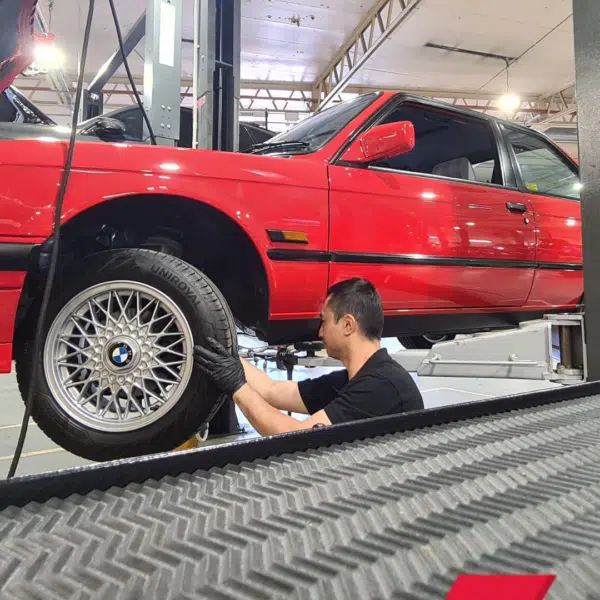The automotive aftermarket is undergoing a significant shift, with temporary workers playing an increasingly vital role in shaping the industry’s future. With 1.42 million temporary workers across the UK, these roles have evolved from short-term fixes to integral workforce solutions that offer agility and adaptability.

For automotive businesses facing skill shortages, fluctuating demand, and economic pressures from measures such as the Autumn Budget and rising National Insurance contributions, reports are suggesting that temporary workers will increasingly become a key strategy to maintain operational efficiency in 2025.
For 14 years, Autotech Recruit has been demonstrating the power of leveraging its vast network of temporary vehicle technicians and MOT testers to tackle the automotive aftermarket’s challenges while providing flexibility and opportunities for employers one of the first to place into the automotive aftermarket.
This practice, once rare, is now common, and last year, Autotech Recruit filled almost 436,000 hours for aftermarket businesses and carried out almost 104,000 MOTs through its network of contractors.
Temporary workers have become an integral part of the industry – they are shaping their own career paths while helping aftermarket businesses maintain operational efficiency. This shift benefits both employers and contractors, with temporary roles offering valuable flexibility and strategic advantages.
The evolving role of temporary work
For many businesses, temporary workers are now a key element of their long-term strategy, helping to manage peaks in demand, tackle skill shortages, and ensure operational continuity. A long way from the past when they were viewed as a solution to short-term problems: covering for staff on leave, filling gaps during busy seasons, or providing emergency support.
In the automotive sector, the need for highly skilled vehicle technicians and MOT testers is more critical than ever. As the industry evolves with technological advancements – such as electric vehicles, technology-driven diagnostics, and connected car technologies – the demand for specialised expertise continues to grow.
Temporary workers, with their ability to provide niche skills on demand, are an invaluable resource for companies looking to stay competitive.
Rather than being seen as a last resort, contractors have become a strategic choice for businesses seeking agility in a dynamic market. By integrating temporary roles into their workforce planning, automotive employers can scale their operations up or down as needed, without the long-term financial commitment of permanent hires.
Flexibility for employers and workers alike
For contractors, the benefits of temporary work are clear: flexibility, autonomy, and the opportunity for continuous learning. According to recent findings from the Recruitment and Employment Confederation (REC), more than half of temporary workers believe that their current role is the right fit for their stage in life, with many preferring temporary contracts over permanent positions.
Flexibility is a key factor in this preference, with 68% of respondents citing improved work-life balance as a primary driver for choosing temporary work.
In the context of the automotive industry, where shifts can be long and demanding, the ability to choose temporary assignments offers contractors the freedom to manage their schedules and avoid burnout.
Moreover, temporary workers are not only benefiting from the flexibility of their roles but are also actively shaping their own career paths. The opportunity to work across different businesses provides valuable experience, helping contractors build a diverse skill set that can make them even more attractive to future employers. The flexibility of contracting also enables them to pursue continuous professional development, ensuring they stay up to date with the latest training and technological advancements in the sector.
As the number of temporary workers continues to rise, automotive employers should recognise the strategic advantages of incorporating these roles into their workforce planning. The flexibility offered by temporary contracts can benefit permanent employees as well, helping businesses manage workload fluctuations without overburdening their full-time staff. Offering this kind of flexibility, alongside training opportunities, can also improve employee retention by creating a more engaged and motivated workforce.
Temporary workers are no longer just filling gaps – they are shaping the future of the industry. By embracing this trend, automotive businesses can maintain operational efficiency while fostering a more adaptable, resilient workforce.
The future of temporary work
The UK’s temporary labour force plays a vital role in supporting the economy, and the automotive industry is no exception. As the government moves forward with its Employment Rights Bill and reforms the Apprenticeship Levy, there will likely be even more opportunities for temporary workers to upskill and progress in their careers. These developments will benefit both employers and contractors, creating a more dynamic and responsive workforce capable of meeting the challenges of a rapidly evolving industry.
For automotive employers, the message is clear: there is no getting away from the rise of temporary workers, and it’s time to embrace it. By recognising the strategic value of contractors and offering flexibility to their permanent staff, businesses can not only survive but thrive in today’s competitive market.
Temporary roles are no longer a fallback option – they are a deliberate career choice for many and a critical element of modern workforce planning. The automotive industry must adapt to this reality and incorporate temporary workers as an essential part of its long-term strategy.
In doing so, businesses will not only improve operational efficiency but also contribute to the growth and sustainability of the industry as a whole.
Autotech Recruit contractors are already being snapped up for 2025, and we don’t want you to miss out. So, if you book by 20th December for January 2025, you’ll be entered into a draw to win some fantastic prizes. Learn more.

